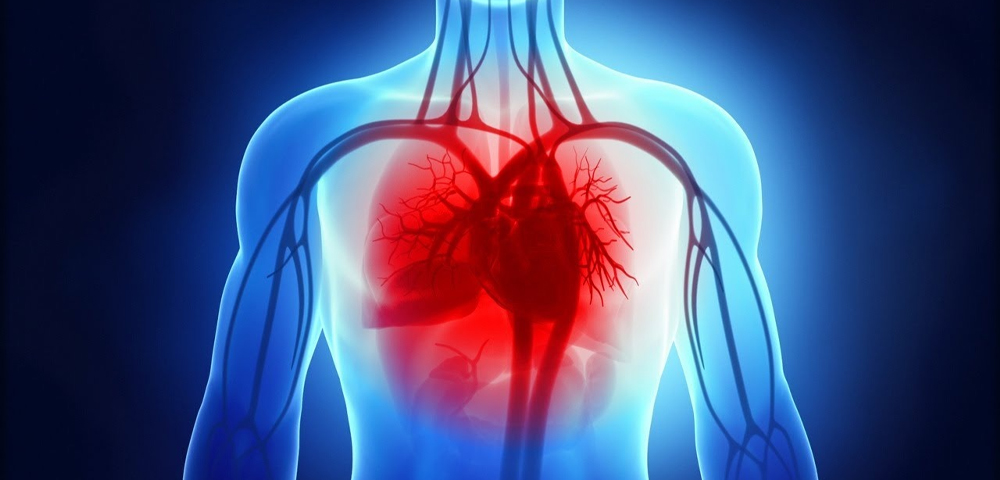
What is Heart Failure?
Heart failure is a serious condition where the heart can’t pump enough blood to supply the body with the oxygen and nutrients it needs. It’s sometimes called “congestive heart failure” because fluid can build up in the body, especially in the lungs and legs, causing swelling. Although heart failure can be managed, it is a long-term condition that requires continuous treatment and lifestyle changes.
Heart failure doesn’t mean the heart has stopped working; it just means it’s not working as well as it should. The heart still pumps blood, but not strongly enough to meet the body’s needs. If you have heart failure, Dr. Akshay Kashid, a Cardiologist specialist in heart care, offers expert treatment. As one of the best Cardiologists in Baner, Pune, Dr. Akshay specializes in helping patients manage heart failure effectively.
Causes of Heart Failure
Several conditions trigger heart failure by either damaging the heart muscle or making it difficult for the heart to pump. Some of these include the following:
Coronary Artery Disease (CAD): CAD is one of the most common causes of heart failure. It occurs when the arteries that supply blood to the heart become narrowed or blocked, which leads to reduced blood flow to the heart muscle.
Heart Attack (Myocardial Infarction): The blockage of one of the coronary arteries causes a heart attack, depriving the part of the heart muscle from receiving blood. This impairment may lead to weakening in its pumping action and thus finally result in heart failure.
High Blood Pressure (Hypertension): Chronic high blood pressure forces the heart to work harder, which can lead to the thickening and stiffening of the heart muscle. Over time, the heart may not be able to pump blood effectively.
Cardiomyopathy: This is a disease of the heart muscle itself. It may be caused by genetic factors, infections, alcoholism, or some medications. It affects the ability of the heart to pump blood.
Valvular Heart Disease: When the valves in the heart become damaged due to infection, aging, or congenital conditions, it makes it hard for the heart to pump blood, which may eventually result in heart failure.
Symptoms of Heart Failure
The symptoms of heart failure are determined by the severity of the disease. Nevertheless, the most common symptoms are:
Shortness of breath: It can be caused by physical exertion or even at rest and often is accompanied by shortness of breath on lying down.
Fatigue: Feeling weak or tired even after resting.
Swelling (Edema): Fluid buildup in the body causes swelling in the legs, ankles, abdomen, or feet.
Rapid or irregular heartbeat: Awareness of the heart racing or pounding.
Weight Gain: Unexplained gain in weight due to fluid retention.
Prolonged Cough or Wheezing: Fluid retention can cause a persistent cough or wheezing.
Heart Failure Treatment
Heart failure is a chronic condition, but it can be treated with the right approach. The treatment plan is usually based on the specific causes of heart failure and may include:
Medications:
-Diuretics help to reduce fluid buildup by promoting urination.
-ACE inhibitors and Beta-blockers help the heart pump more effectively and reduce blood pressure.
-Aldosterone antagonists and Angiotensin Receptor Blockers (ARBs) can be prescribed to help relax blood vessels and decrease fluid buildup.
Lifestyle Changes:
Diet: A heart-healthy diet with reduced salt intake helps decrease fluid retention.
Exercise: Regular physical activity makes the heart stronger and improves blood circulation.
Weight Management: Maintaining a healthy weight decreases strain on the heart.
Medical Devices:
Pacemakers: If heart failure is related to an abnormal heart rhythm, a pacemaker can help regulate heart rate.
Implantable Cardioverter-Defibrillators (ICDs): These devices help prevent sudden cardiac arrest by delivering a shock if the heart stops beating.
Surgical Interventions:
Heart Valve Surgery: If heart failure is caused by a faulty heart valve, surgery may be necessary to repair or replace the valve.
Coronary Artery Bypass Surgery (CABG): If heart failure is due to blocked arteries, surgery can restore proper blood flow.
Heart Failure Treatment by Dr. Akshay
Dr. Akshay Kashid, a skilled Cardiologist specialist, provides a comprehensive approach to heart failure treatment, aiming to improve heart function, reduce symptoms, and enhance quality of life. His treatment methods include:
- Medication: Dr. Akshay prescribes medications such as ACE inhibitors, beta-blockers, diuretics, and angiotensin receptor blockers to reduce the heart’s workload, improve heart pumping efficiency, and manage symptoms like fluid retention and shortness of breath.
- Lifestyle Modifications: Dr. Akshay emphasizes the importance of lifestyle changes, including a heart-healthy diet, regular physical activity, and stress management, to improve the overall functioning of the heart.
- Advanced Therapies: For more severe cases, advanced therapies like implantable devices, including pacemakers or implantable cardioverter-defibrillators (ICDs), are used to regulate heart rhythm and prevent sudden cardiac arrest.
- Surgical Options: In cases where heart failure is advanced, Dr. Akshay may recommend surgeries such as heart valve repair or replacement, coronary artery bypass grafting (CABG), or even heart transplants, based on the patient’s specific condition.
- Ongoing Monitoring: Regular check-ups and monitoring ensure that treatment is optimized over time. Dr. Akshay uses tools like echocardiograms, ECGs, and blood tests to assess heart function and adjust treatment plans accordingly.
What Dr. Akshay offers for Heart Failure treatment?
Dr. Akshay provides comprehensive care for Heart Failure, including:
- Medications: Prescribing key medications like ACE inhibitors and beta-blockers to improve heart function.
- Lifestyle Changes: Guiding patients on diet, exercise, and weight management to reduce strain on the heart.
- Continuous Monitoring: Regular tests to track heart function and adjust treatment plans.
- Managing Comorbidities: Addressing conditions like hypertension and diabetes to support heart health.
- Patient Education: Empowering patients with knowledge to manage symptoms and improve outcomes.
- Palliative Care: Offering symptom management and support for advanced heart failure.
Why Choose Dr. Akshay Kashid for Heart Failure Treatment?
Dr. Akshay Kashid, a Cardiologist specialist in Baner, Pune, offers expert care in diagnosing and treating heart failure. His holistic approach includes:
- Advanced Diagnosis: Dr. Akshay uses the latest diagnostic equipment, such as ECG, echocardiograms, and stress tests, to detect heart failure at its earliest stages.
- Personalized Treatment: Each patient receives a treatment plan tailored to their needs, including medications, lifestyle changes, and the use of devices or surgery when necessary.
- Continuous Monitoring: Dr. Akshay ensures regular follow-up to track the patient’s progress and make adjustments to the treatment as needed.
Prevention and Education: Dr. Akshay educates patients on how to manage their condition, make healthy diet and exercise choices, and implement lifestyle changes to prevent future complications.
FAQs
Yes: Heart failure is a chronic condition but can be managed with medication, lifestyle changes, and sometimes surgery.
Yes: Prevention involves controlling risk factors like high blood pressure, diabetes, and heart disease through regular check-ups and healthy habits.
Yes: Treatment includes medications (diuretics, ACE inhibitors), lifestyle changes, and in some cases, surgeries like heart transplants.
Yes: Life expectancy depends on the severity of heart failure, underlying conditions, and how well it is managed.
Yes: Yes, heart failure can lead to kidney problems, liver damage, and fluid retention in the lungs.
Yes: Exercise can be beneficial if approved by a doctor and tailored to the individual’s condition.
Dr. Akshay Kashid, a leading cardiologist in Baner, provid
